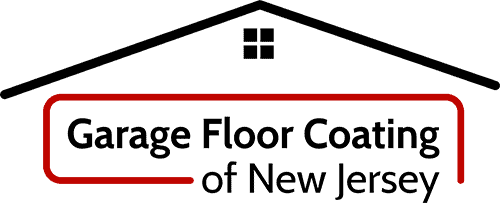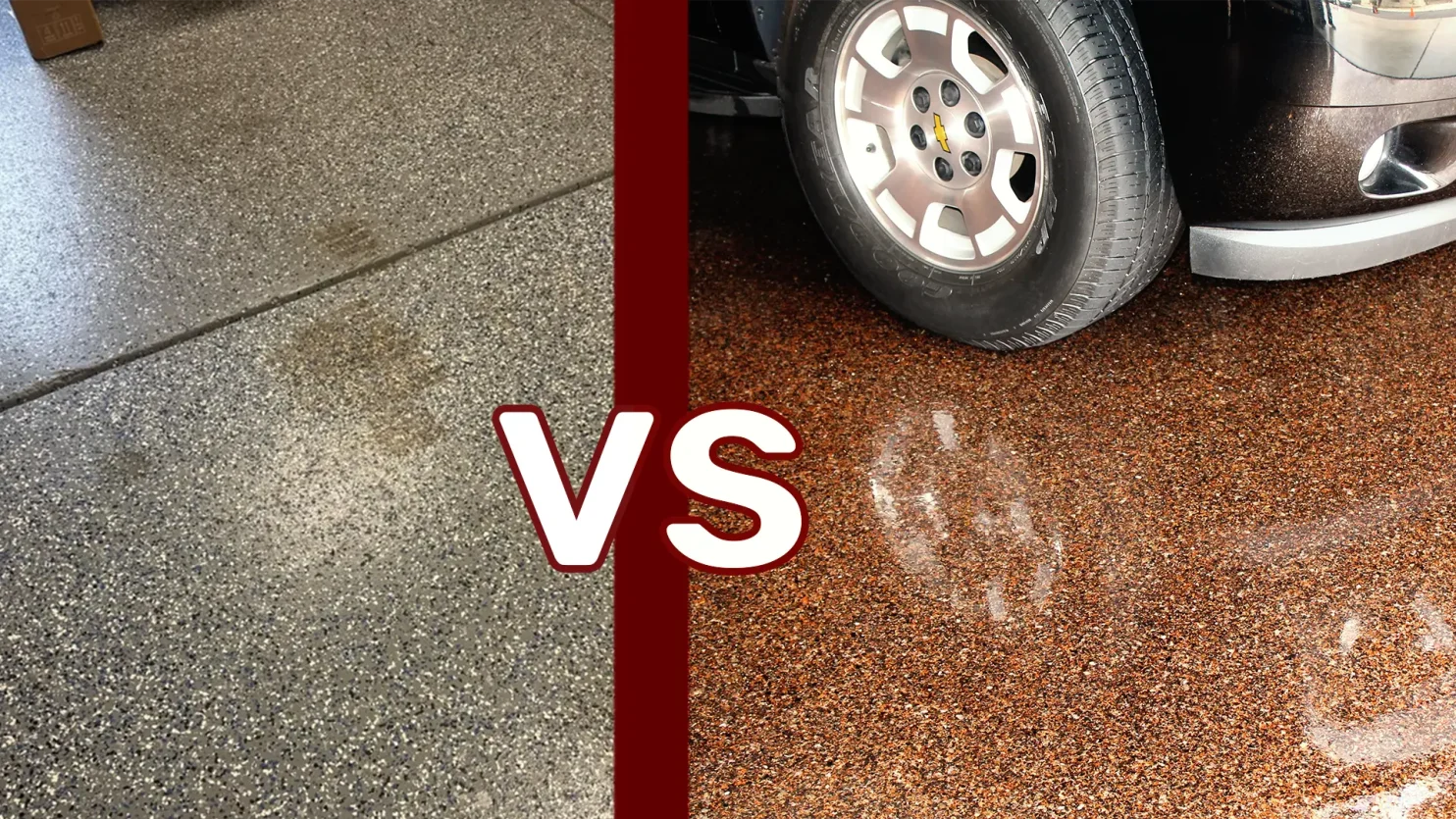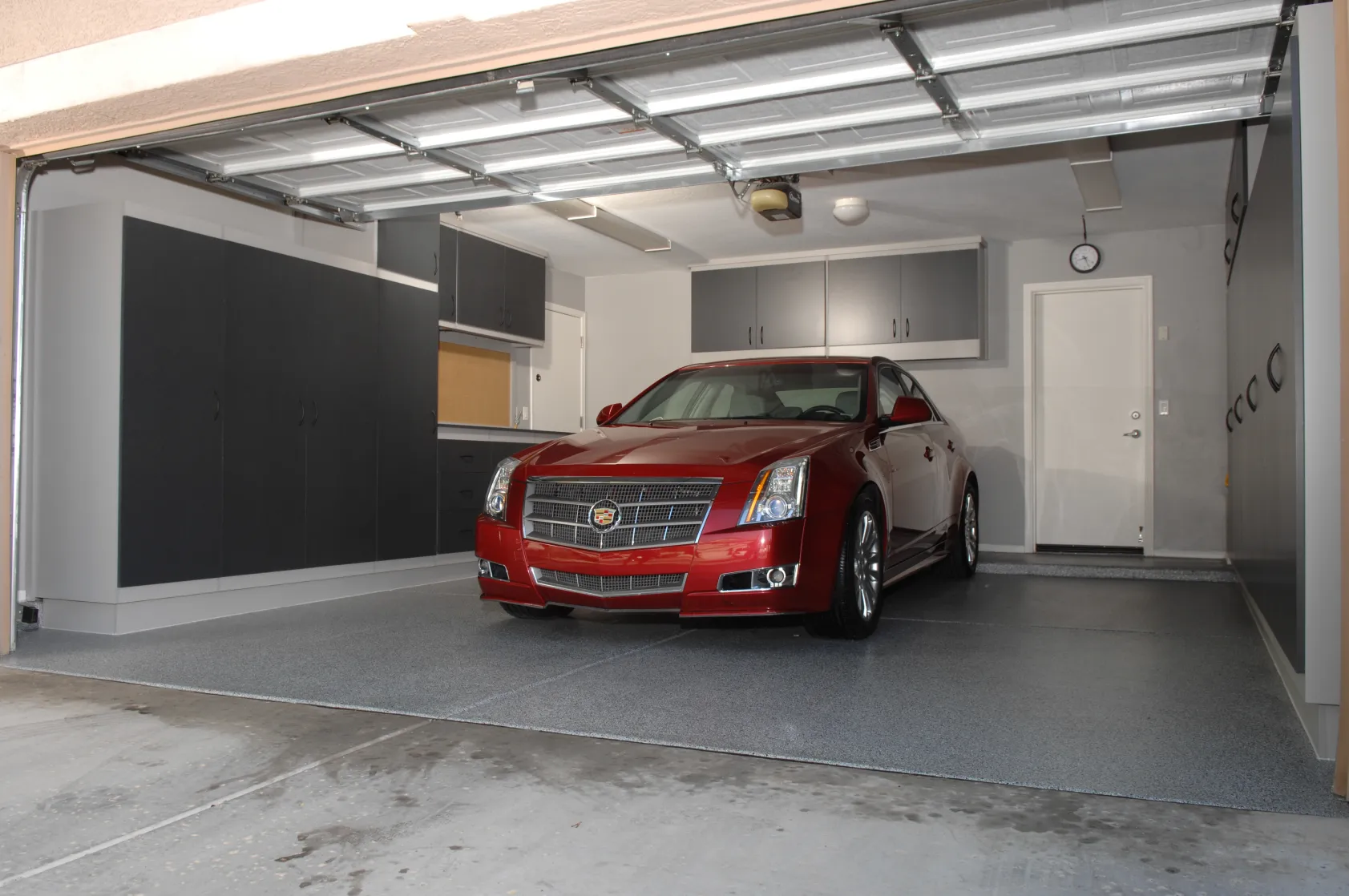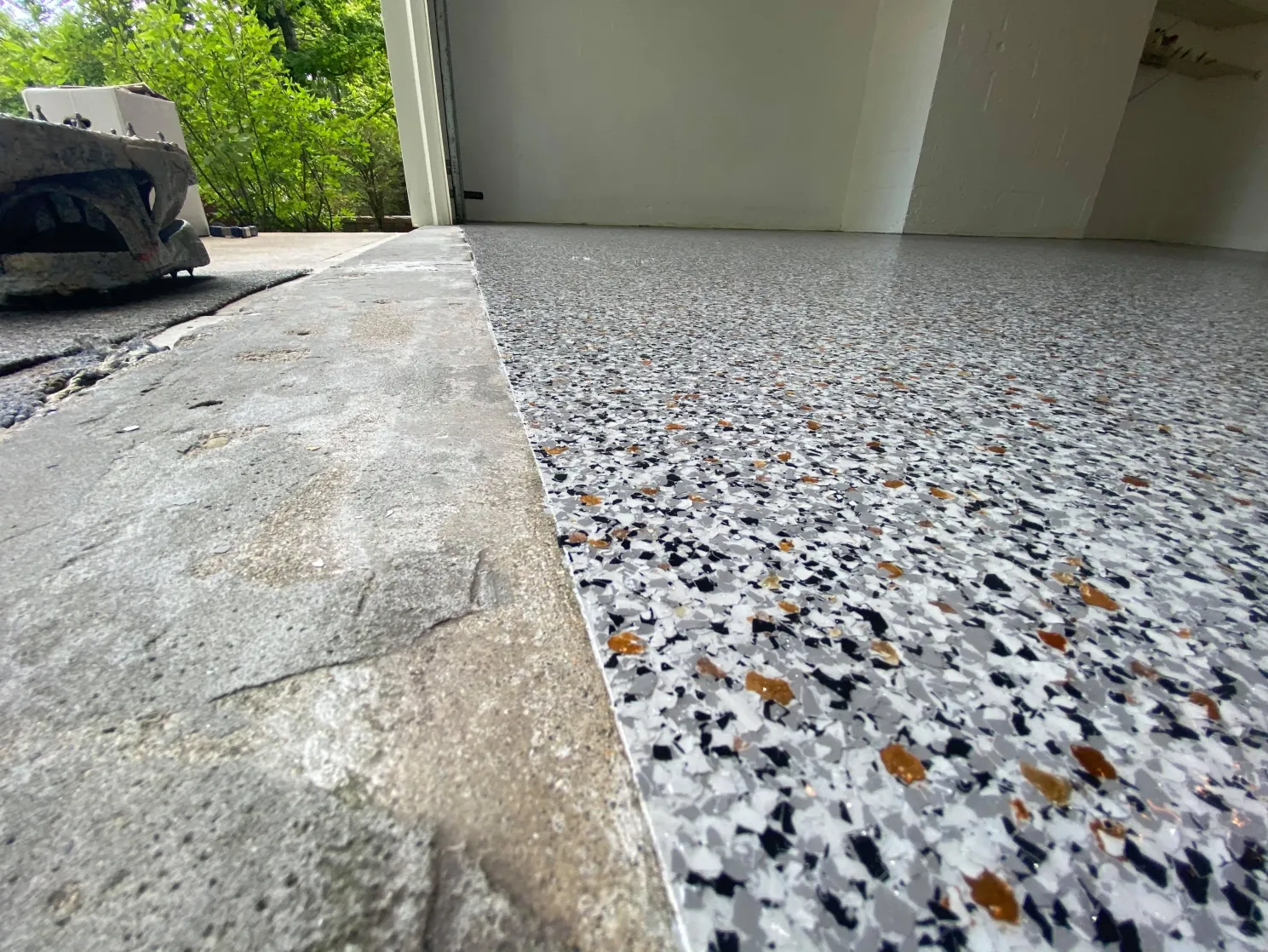Myth: All Garage Floor Coatings Prevent Hot-Tire Transfer
Many homeowners assume that all garage flooring options offer the same level of protection against stains, peeling, and hot-tire transfer. Some companies even claim their “1-day” polyurea (or 1-day polyaspartic) coatings provide long-term durability. But the reality is that not all coatings are created equal, and many fail when exposed to the daily stress of vehicle use.
One of the most common issues is hot-tire transfer. Car tires contain plasticizers—typically phthalates or other softening agents—to keep the rubber flexible. When hot (after driving, especially in summer), the tire’s plasticizers migrate to the surface. As the car sits parked on the garage floor, the plasticizers leach into lower-quality garage floor coatings. This leads to discoloration, tackiness, or even chemical breakdown. Many “1-day” systems rely on weaker polyaspartic formulations that simply can’t resist this type of damage.
Reality: GFC Polyaspartic Flooring Is Built to Resist Hot-Tire Transfer
At Garage Floor Coating of New Jersey, we take a different approach. Our hybrid epoxy and polyaspartic flooring system is designed to withstand “plasticizer migration”, ensuring hot-tire transfer doesn’t compromise the integrity of your garage floor. Unlike 1-day systems, we use a 2-day installation process that allows for superior bonding and long-term durability.
Our system starts with the application of a thick, moisture-mitigating, 100%-solids epoxy base coat. It’s allowed a full day to cure, so it deeply penetrates and bonds with the concrete slab for unmatched adhesion. (This thick base coat acts as a moisture vapor barrier, mitigating future “moisture-related issues”). Into the uncured base layer, we broadcast your chosen flake blend in a full-flake spread, covering the epoxy primer in it’s entirety.
We return on day 2 to apply two separate layers (our competitors only apply one!) of our 100%-solids polyaspartic topcoats. This quality, 100%-solids polyaspartic provides extremely high cross-linking which resists UV fading, heat, abrasions, and staining…including staining from hot-tire transfer. The result is a floor that maintains its flawless appearance even after years of heavy use.
Myth: All Garage Flooring Warranties Cover Hot-Tire Transfer
Many homeowners assume that if their garage floor is under warranty, it must include protection against hot-tire transfer. Unfortunately, most companies don’t warrant against hot-tire transfer (they can’t because they use a 1:1 ratio, <100%-solids polyaspartic that has a poor cross-link density). Meaning, once the staining sets in, homeowners are left with no recourse.
Reality: GFC Stands Behind Its Flooring
We believe in the strength of our hybrid epoxy and polyaspartic flooring, so much so that we warrant against all moisture-related issues (like high hydrostatic pressure) and hot-tire transfer. A quick review of our competitors warranty exclusions and you’ll see that this is something they refuse to do.
Our multi-layer system is designed to withstand daily use, extreme temperatures, moisture, and hot-tire transfer, giving homeowners peace of mind that their investment is protected.
The Smart Choice for Long-Lasting Garage Flooring
Hot-tire transfer is a real issue, and not all coatings are built to handle it. Garage Floor Coating of New Jersey’s hybrid epoxy and polyaspartic flooring is a long-lasting solution that resists staining, peeling, and premature wear. If you want a garage floor that truly holds up over time, trust the industry leader in durability and protection.



